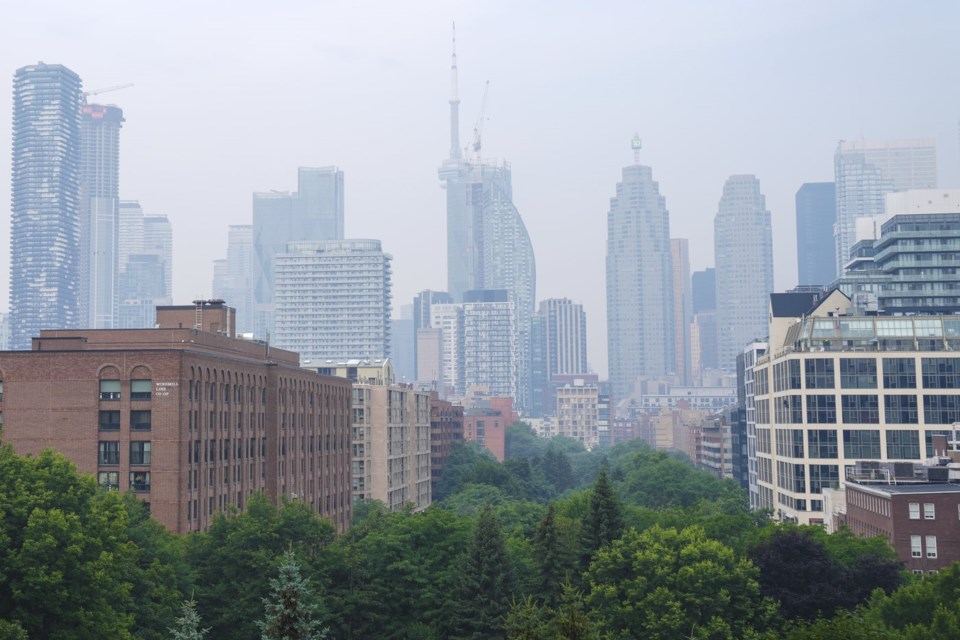TORONTO — Much of Central Canada and Manitoba were placed under special air quality statements or warnings early Monday morning amid smoke from wildfires, as Environment Canada advised residents to limit time outdoors and watch for smoke exposure symptoms.
The weather agency said swaths of Ontario and Quebec will have poor air quality and reduced visibility as westerly winds bring in smoke from forest fires into the area.
It said parts of southern Ontario, from Windsor to Ottawa, are under an air quality warning due to the smoke, adding the conditions may persist through the day and into Tuesday. The warning also applied to parts of southern Quebec, including Montreal and Trois-Rivieres.
The Air Quality Health Index rating for Toronto was over 10, or "very high risk," on Monday morning.
Southern Ontario and Quebec were also placed under heat warnings Monday, with Environment Canada warning of daytime highs of up to 32 C.
"When there is an extreme heat event occurring with poor air quality, prioritize keeping cool," it said.
The weather agency has also issued a special air quality statement for much of Manitoba, noting that air quality and visibility due to wildfire smoke can fluctuate over short distances and vary from hour to hour.
Environment Canada said residents should consider limiting time outside and be mindful of smoke exposure symptoms. Though everyone's health is at risk amid wildfire smoke, those who are 65 or older, pregnant, young children, and have an existing health condition or work outdoors are more likely to be impacted, it said.
"Check in on others who are in your care or live nearby who may be more likely to be impacted by outdoor air pollution," the agency said, adding that residents should reschedule or cancel outdoor events, and keep windows and doors closed as much as possible.
Environment Canada said symptoms of smoke exposure include eye, nose and throat irritation, headaches or a mild cough. More serious but less common symptoms include wheezing, chest pains or severe cough.
The weather agency recommends people wear a well-fitting respirator-type mask, such as an N95 mask, if they have to go outside.
This report by The Canadian Press was first published July 14, 2025.
Rianna Lim, The Canadian Press




